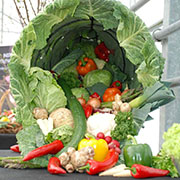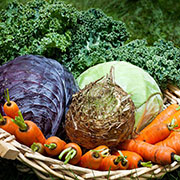HealthyGrowth



More about the project
Main results and conclusions
Three important outcomes for the project have derived from the state of art review:
- it has been the pivot for discussing and developing a shared understanding and description of what we mean by “Mid-scale values-based food chains”
- it has provided a compressive overview over existing and emerging initiatives in the participating countries, as one of the major inputs to WP2.
- thirdly, the outcome of the state-of-the-art review has been some initial analysis and conclusion on what characterise the success of these initiatives:
- Emphasize a diversity of values and product qualities in addition to organic standard (e.g. regionality, animal welfare, fair pricing).
- Most chains access a diversity of sale channels, in many cases both direct and indirect channels.
- Utilize a diversity of means to communicate values and product qualities to customers and consumers, both via direct and indirect means.
- Emphasize personal relationships between chain actors for building trust and common values along the chain to secure communication of product qualities. Values associated with the business relationship also are emphasized.
- Establish a diversity of organizational forms/structures, where different forms of producer organizations are common in a majority of the chains.
These characteristics of successful chains seem to be closely connected to one another in order to achieve successful and healthy growth.
A main conclusion form the-state-of-the-art review is that there still is a major knowledge gap in research on mid-scale values- based organic chains in Europe in general and challenges related to the growth processes in particular. The HealthyGrowth project aims to fill parts of this gap.
Based on the outcome of the-state-of-the art review and input from the national teams, the selection of initiatives for case studies have been carried out. And the analytical framework for the case studies has been developed.
A total of 18 case study reports in different degrees of finalisation have been presented, and 3-4 more case studies are in the pipe-line. All existing case study reports have received feedback several times from task leaders in WP5 and the comparative analyses of the conducted case studies are now going on.
HealthyGrowth
Coordinator
Egon Noe, Aarhus University, Denmark
Partners
Rebecka Milestad, Royal Institute of Technology, Sweden
Claire Lamine, INRA, France
Hilde Bjørkhaug, Centre for Rural Research, Norway
Andreja Borec, University of Maribor, Slovenia
Markus Schermer, University Innsbruck, Austria
Helmi Risku-Norja, MTT Agrifood, Finland
Susanne von Muenchhausen, Eberswalde University of Applied Sciences, Germany
Virgilijus Skulskis, Lithuanian Institute of Agrarian Economics, Lithuania
Handan Giray, Suleyman Demiral University, Turkey
Adem Atasay, GDAR Directorate of Fruit Research Station, Turkey
Project stakeholders
The target groups are food networks, businesses and initiatives of value-based organic food chains. This includes small-scale organic producers, processors, wholesalers and retailers. The project addresses potential new organic actors in innovative forms of partnership and cooperation, as well as large-scale market chains. Besides market actors, organic farmers associations and public bodies are core recipients of dissemination.
The transdisciplinary cooperation and communication related to case studies work enhances stakeholder involvement. Moreover, the elaboration and dissemination of the results will be based on a regional and national network building. HealthyGrowth enables the ongoing exchange of ideas and experiences between stakeholders, as well as training of facilitators.

